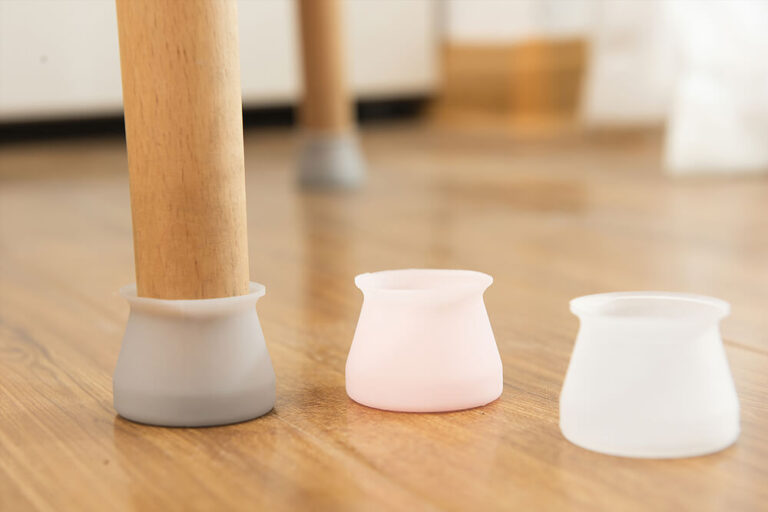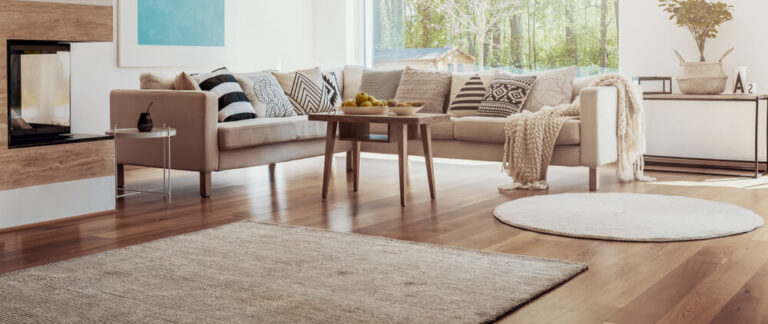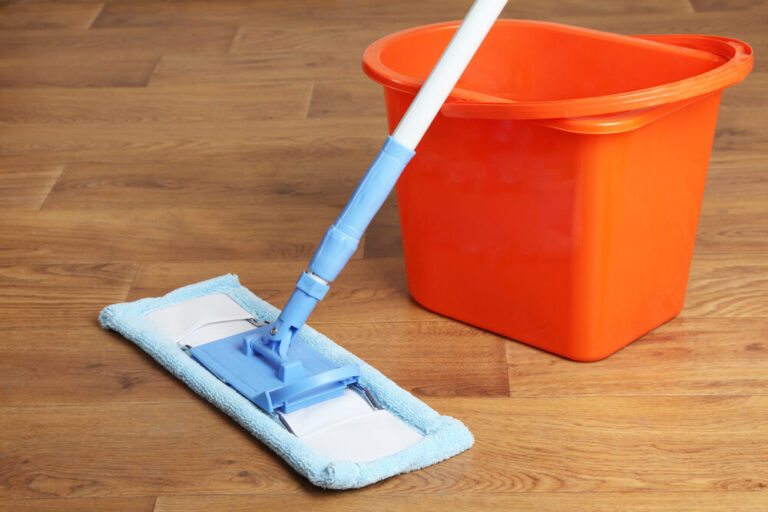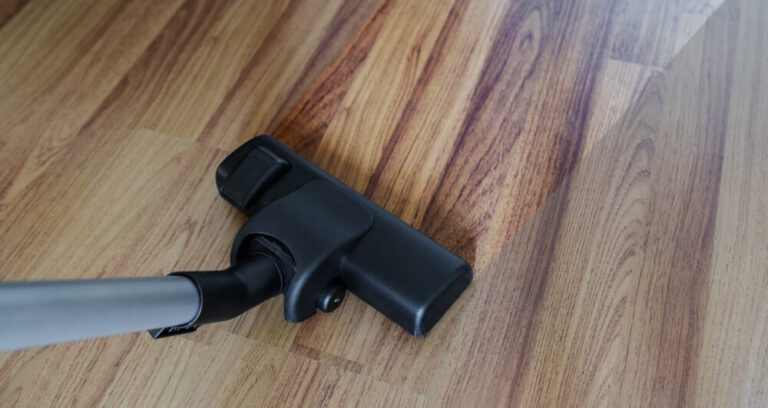5 Best Hardwood Floor Sealers for Every Budget and Need💰
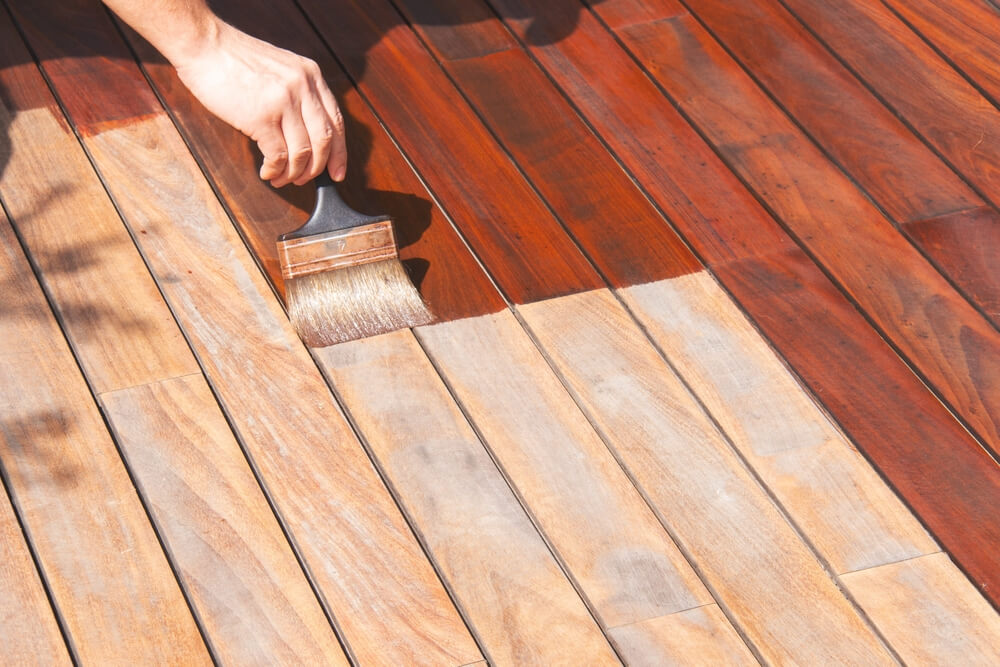
Hardwood floors are a huge investment to any home. But to keep them elegant and secure, you need the right tools, and that’s where hardwood floor sealers come into play. A good sealer protects and gives your floors a beautiful shine and enhances their natural grain.
But with so many different wood floor sealers on the market, it can be difficult to know which one is right for you. That’s where we come in. Being hardwood flooring experts, we will review the best hardwood floor sealers on the market for every budget and need.
Read on to learn everything you need to know about hardwood floor sealers and choose the best one for your home.
5 Best Hardwood Floor Sealers
Given below is the list of top five wood floor sealers for every problem of your hardwood floors. Let’s have a look at their detailed reviews:
Bona Traffic HD Hardwood Floor Sealer
When it comes to protecting and enhancing the beauty of your hardwood floors, the choice of sealer plays an important role. Bona, a well-respected name in the world of hardwood floor maintenance, offers the Bona Traffic HD Hardwood Floor Sealer. Let’s have a look at its details:
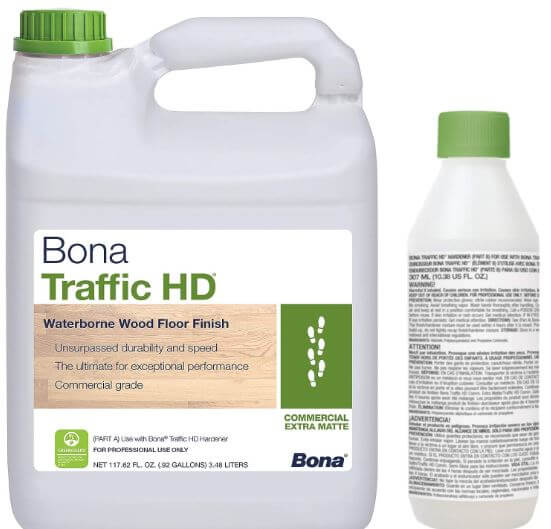
Key Features
Bona Traffic HD Hardwood Floor Sealer excels in terms of performance. It is one of the most durable water-based polyurethane sealers. It withstands heavy foot traffic and provides an extra matte finish that preserves the natural beauty of your hardwood floors. Its high durability and resistance make it suitable for both residential and commercial settings. It is resistant to scratches, scuffs, and stains.
This wood floor sealer is self-leveling, so it is easy to apply and get a smooth finish even if you are not a professional flooring contractor. Its durable finish can last for up to 10 years with proper care. It is GREENGUARD Gold certified, which means it meets strict indoor air quality standards.
Bona Traffic HD dries to the touch in 2-3 hours and can be walked on after 24 hours, so you won’t have to keep your family and pets off your floors for long. It is a water-based sealer with low VOCs, making it safe for indoor use.
Compared to other sealers in the market, Bona Traffic HD consistently ranks high. It surpasses many oil-based sealers in terms of drying time and VOC content. Additionally, it outperforms other water-based sealers by offering superior durability and a unique extra matte finish. While the price may be higher, the quality and longevity it provides make it a worthwhile investment.
Overall, Bona Traffic HD is a great choice for homeowners who are looking for a durable, easy-to-apply, and low-VOC hardwood floor sealer.
Pros
- Extremely durable
- Scratch-resistant
- Scuff-resistant
- Stain-resistant
- Waterborne and low-VOC
- GREENGUARD Gold certified
- Easy to apply
- Dries quickly
Cons
- A bit expensive but not the deal breaker
- Requires two coats for best results
- May need to be reapplied every 5-10 years, depending on traffic
Zep Stain Resistant Floor Sealer
Looking for a promising and lasting wood floor finish? Zep Stain Resistant Wood Floor Sealer is a product that promises to provide that protection. Let’s have a look into its details:

Key Features
Zep’s Stain Resistant Wood Floor Sealer is a waterborne, low-VOC polyurethane sealer that effectively resists stains. It forms a protective barrier that prevents spills and stains from seeping into the wood, which is why it may be called a hardwood floors waterproof sealer. It is compatible with various wood types, making it a versatile choice for various wood floor projects.
Unlike some other sealers, Zep’s Stain Resistant Wood Floor Sealer stands out due to its stain resistance while preserving the wood’s natural beauty. It does not alter the look of your floor, leaving them looking nearly unchanged.
Pros
- Affordable
- Very durable
- Scratch-resistant
- Scuff-resistant
- Stain-resistant
- Waterborne and low-VOC
- GREENGUARD Gold certified
- Easy to apply
- Dries quickly
Cons
- A bit tough application
- Drying time is slow
Varathane Rust-Oleum Wood Floor Sealer
Glossy finished sealers offer protection with a sense of style, elegance, and neatness to your hardwood floors. If you want a similar look, Varathane Rust-oleum sealer is the must have for you.
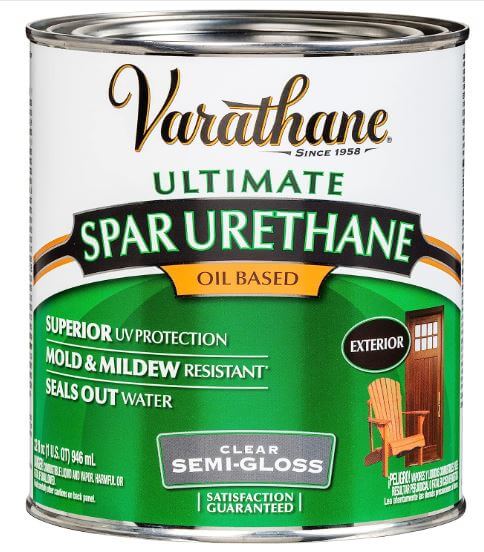
Key Features
Varathane Rust-Oleum Wood Floor Sealer provides superior protection against scratches, scuffs, and stains with a neat glossy finish. One of the standout features of this sealer is its exceptional durability. It effectively guards against everyday wear and tear, making it ideal for homes with children, pets, and high-traffic areas.
Its semi-gloss finish enhances the wood’s natural beauty, giving it a luxurious and elegant appearance. The sealer dries relatively quickly and provides a smooth, even surface.
Varathane Rust-Oleum Wood Floor Sealer dries relatively quickly, allowing you to return to your daily routine with minimal disruption. This sealer is user-friendly, Therefore, everyone can apply it easily. It is also considered as the best wood floor sealer for cracks cleaning.
Compared to other wood floor sealers, Varathane Rust-Oleum stands out for its balance of durability and aesthetics. It outperforms many water-based sealers in terms of longevity, while also delivering a glossy finish. It is a strong competitor for those seeking a premium look that can endure heavy use.
Pros
- Durable and long-lasting
- Scratch-resistant and scuff-resistant
- Easy to apply
- Affordable
- Fast drying time
- Offers Natural aesthetics
Cons
- Have some odor
- May require sanding on reapplication
Rubio Monocoat Oil Plus 2C
When it comes to protecting and enhancing the natural beauty of wood surfaces, Rubio Monocoat Oil Plus 2C is a product that promises excellent performance. Let’s have a look at its details:
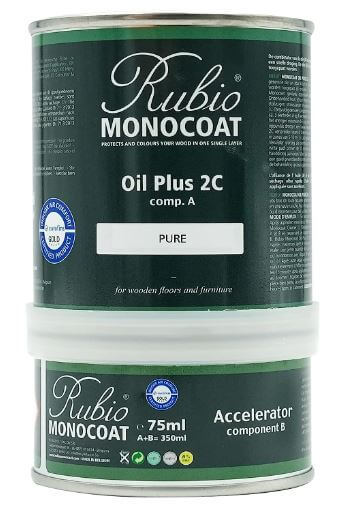
Key Features
Rubio Monocoat Oil Plus 2C shows outstanding performance. It is a single-coat finish that protects wood surfaces while enhancing their appearance. This product stands out for its durability, offering excellent resistance. It bonds molecularly with wood fibers, making it highly effective at preventing scratches and stains.
This product offers an array of colors, allowing you to choose the perfect shade for your project while maintaining the wood’s natural look. The finish is matte and natural, preserving the wood’s original beauty without a glossy sheen. Rubio Monocoat is VOC-free and environmentally friendly, making it a safe choice for indoor use.
Compared to other wood finishes, Rubio Monocoat is notable for its durability and natural finish. It is an excellent choice for those who want to protect their wood surfaces while maintaining their original look. It requires a bit more time during application but minimizes the need for reapplication over time, making it a cost-effective choice in the long run.
Pros
- Hardwax oil formula
- VOC-free and food-safe
- Easy to maintain
- Single-Coat Application
- Natural Finish
- Eco-Friendly
Cons
- A bit more application Time
- May Require Multiple Coats
Minwax Polycrylic Water-Based Floor sealer
Minwax Polycrylic Water-Based wood Floor sealer is another sealer that offers exceptional protection and durability. Let’s have a look at its details:
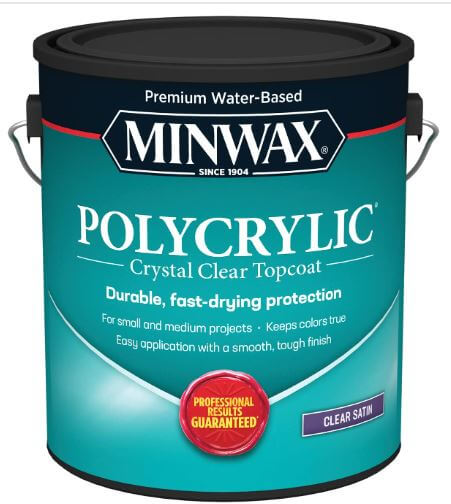
Key Features
Minwax Polycrylic Water-Based Floor Sealer protects wood surfaces from common wear and tear, including scratches and stains. Its water-based formula dries quickly and provides a clear finish that enhances the natural beauty of the wood. However, its performance may not be as robust as some oil-based alternatives.
This sealer dries remarkably fast, reducing downtime during your project and , making it more convenient for smaller projects. Being water-based, it emits minimal odor and is safer for indoor use. However, the choice of water-based formulation can affect its durability, making it better for low to medium-traffic areas.
When compared to other wood sealers, Minwax Polycrylic stands out due to its water-based formula. It dries quickly However, it may require more coats for optimal protection, and it may not be as durable as oil-based alternatives, which are better suited for high-traffic areas. You can also use some best door mats to protect hardwood floors in such areas.
Pros
- Quick Drying
- Clear Finish
- Water-Based
- Affordable
- Easy to apply
- Waterborne and low-VOC
Cons
- May not be as durable as some other sealers
- May require multiple coats
Buying Guide: How to Choose the Right Hardwood Floor Sealer
Choosing the right hardwood flooring sealer is important to ensure the long-term beauty and durability of your flooring. With various options available, it can be a bit overwhelming. Here’s a comprehensive buying guide to help you make an informed decision:
1. Type Of Sealer: What Kind Of Sealer To Use On Hardwood Floors
The first decision you’ll need to make is the type of sealer suitable for your hardwood floors. There are four primary types to consider:
Water-Based Sealers
These are eco-friendly, low in VOCs, and dry quickly, making them ideal for hardwood floors. They’re a popular choice for their ease of use and minimal odor.
Oil-Based Sealers
Oil-based sealers penetrate the wood deeply, offering superior protection for hardwood floors. However, they take longer to dry and may emit a stronger odor.
Polyurethane Sealers
Available in both water-based and oil-based variants, polyurethane sealers are known for their durability and resistance to scratches and moisture, making them a great choice for high-traffic hardwood floors.
Penetrating Sealers
These sealers penetrate the wood’s pores and protect it from within, providing a natural look. They may require more frequent reapplication but are excellent for preserving the beauty of hardwood floors.
Make sure the sealer does not contain any hazardous ingredients, otherwise it may be harmful for the residents. According to research, three hardwood floor finishers died of the hazardous effects of wood floor finish. Therefore, sealers should be chemical-free.
2. Finish Type
Decide whether you want a glossy, satin, or matte finish for your hardwood floors. This largely depends on your aesthetic preference and the level of shine you desire. Keep in mind that glossy finishes tend to show scratches and imperfections more than satin or matte finishes.
3. Durability
Look for a sealer that offers long-lasting protection, especially if you want your hardwood floors to withstand the test of time in high-traffic areas. Check the product’s label for information on its abrasion resistance, stain resistance, and overall durability.
4. Ease of Application
Consider your DIY skills and the application process, especially if you plan to apply the sealer to your hardwood floors yourself. Some sealers are more user-friendly than others. Water-based sealers, for instance, are often easier to work with due to their quicker drying times.
5. VOC Content
For the health of your family and the environment, consider the Volatile Organic Compounds (VOC) content. Water-based sealers are generally lower in VOCs and are more environmentally friendly, making them a safe choice for your home’s hardwood floors.
6. Compatibility
Ensure that the sealer you choose is compatible with your hardwood flooring type. Some sealers work better on specific wood species, so read the product specifications carefully to ensure a perfect match for your hardwood floors.
7. Cost
Calculate the coverage area of the sealer based on the square footage of your space. Compare the cost per square foot to determine the most cost-effective option for your hardwood floors. Remember that the initial investment in a high-quality sealer can save you money in the long run by extending your floor’s lifespan.
8. Drying and Curing Time
Consider how long the sealer takes to dry and cure. Drying times can vary significantly between different products. Keep in mind that you’ll need to avoid foot traffic and heavy furniture on the newly sealed hardwood floors until it’s fully cured.
9. Maintenance and Recoating
Find out if the sealer allows for easy maintenance and recoating of your hardwood floors. Some sealers may require sanding or complete removal before recoating, while others can be recoated without extensive preparation, simplifying the maintenance of your hardwood floors.
FAQs
What is the Difference Between Oil Based Polyurethane vs Water based?
Oil-based polyurethane and water-based polyurethane are two common options for finishing hardwood floors. Oil-based polyurethane offers robust durability but has a longer drying time and emits stronger odors. In contrast, water-based polyurethane dries faster, has a milder odor, and is more eco-friendly. The choice between the two depends on your priorities, with oil-based being ideal for heavy traffic areas, and water-based for quicker, low-odor projects.
What is the Difference Between hardwood floor sealer vs polyurethane?
Hardwood floor sealer and polyurethane are related but distinct products. A hardwood floor sealer is a preparatory coating that seals the wood, while polyurethane is a protective topcoat applied over the sealer. The sealer provides adhesion and uniformity, and polyurethane adds durability and sheen. Both are crucial for protecting hardwood floors, with the sealer applied first to ensure proper adhesion and a smooth finish.
What Is The Best Sealer For Hardwood Floors?
The best sealer for hardwood floors often depends on your specific needs. Water-based polyurethane sealers are popular for their durability and low VOCs, while oil-based sealers provide deeper penetration. Bona Mega, Varathane, and Minwax are trusted brands to consider.
Should Hardwood Floors Be Sealed?
Yes, hardwood floors should be sealed. Sealing protects the wood from moisture, stains, and wear, enhancing their longevity and maintaining their appearance.
What Is The Difference Between Hardwood Sealer And Finish?
Hardwood sealers penetrate the wood to protect it, while finishes like polyurethane create a protective layer on the surface. Sealers provide a natural look, whereas finishes add a glossy or satin finish.
How Many Coats Of Sealer Should You Put On Hardwood Floors?
Typically, two to three coats of sealer are recommended for hardwood floors. Applying multiple thin coats ensures even coverage and better protection.
What Is The Cheapest Way To Seal Hardwood Floors?
Water-based sealers are often more affordable and eco-friendly compared to oil-based options. Opting for a DIY application can also save costs.
Is It Better To Seal Or Stain Wood Floors?
Staining adds color to wood floors, while sealing protects them. Both are important, but sealing should come first to safeguard the wood before staining.
What Happens If You Don’t Seal Hardwood Floors?
If you don’t seal hardwood floors, they are vulnerable to moisture damage, stains, and wear. Over time, this can lead to permanent damage and a diminished appearance.
What Can I Put On My Hardwood Floors To Protect Them?
To protect hardwood floors, use area rugs, felt pads under furniture, and regular cleaning like vacuuming or mopping. Applying a quality hardwood floor sealer or finish is the most effective way to protect them.
How Long After Sealing Wood Floor Can You Walk On It?
The drying time varies depending on the sealer and environmental conditions. In general, you can walk on sealed floors lightly after 24 hours, but it’s best to wait 48 hours or more for full curing.
Do You Have To Sand Hardwood Floors Before Sealing?
Sanding is recommended before sealing to ensure a smooth surface and good adhesion. It removes imperfections and old finishes, allowing the sealer to work effectively.
Conclusion
Choosing the right hardwood floor sealer is important to save the beauty of your wood surfaces. Based on extensive research, we recommend Bona Traffic HD, Zep Stain Resistant, Varathane Rust-Oleum, and Rubio Monocoat to cater various needs. We hope you enjoyed the article and learned everything about hardwood floor sealing.
If you still have any questions, feel free to contact us. Our team will be happy to assist you further.


